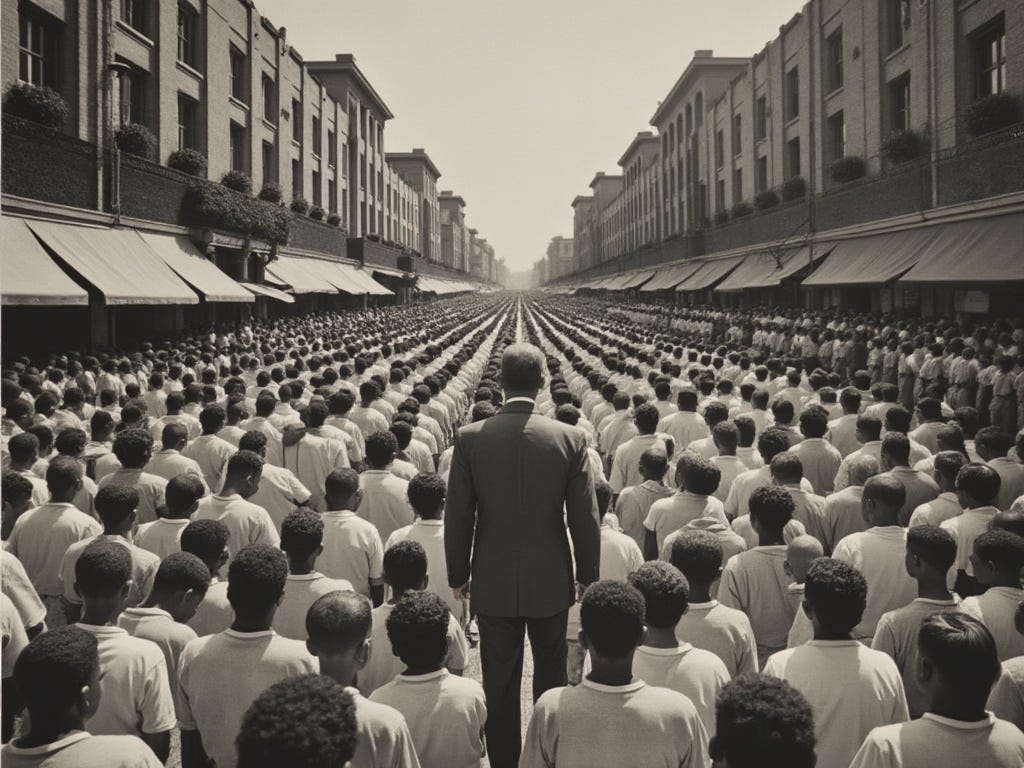

Discover more from @amuse
While diversity, equity, and inclusion (DEI) have almost become a religion here in America, an unexpected backlash is quietly brewing. The backlash isn’t just among those who question the DEI's underlying Marxist agenda; it’s an unintended consequence among those exposed to it. A recent series of studies unveils a troubling paradox: anti-racism trainings—celebrated as the antidote to prejudice—appear to sow the seeds of divisiveness, suspicion, and even outright hostility. Rather than illuminating the path toward a more inclusive society, these trainings encourage individuals to find bias where none exists, turning innocuous interactions into acts of imagined oppression.
One such study, titled "Instructing Animosity: How DEI Pedagogy Produces the Hostile Attribution Bias," was authored by Joel Finkelstein and published by the Network Contagion Research Institute (NCRI). It casts an unflattering light on the works of DEI champions like Ibram X. Kendi and Robin DiAngelo, whose writings are often touted as essential reading for anyone hoping to dismantle systemic racism. The researchers ran a series of experiments, each designed to measure the impact of anti-racism messaging on people's perceptions of bias. In one experiment, participants were exposed either to excerpts from Kendi and DiAngelo or to a racially neutral topic—corn, of all things, to ensure the starkest contrast. The participants were then asked to assess a hypothetical scenario that contained no racial elements whatsoever.
The participants who read the anti-racism excerpts were significantly more likely to perceive racism in the neutral scenario than those who had read about corn. They imagined racism into existence, conjuring microaggressions, harboring suspicions of bias, and identifying offenders who were, quite literally, innocent. What’s worse, these individuals did not stop at mere observation; they also wanted to punish those they imagined as offenders. The bias, fabricated entirely within their own minds, nevertheless stoked a very real desire for retribution.
The researchers found these results alarming enough to replicate the study with a much larger sample size—nearly three times the original. The outcome remained the same, suggesting a worrying consistency. The belief that DEI trainings promote empathy and understanding falters under this light. Instead, they seem to cultivate a type of hostile attribution bias, a psychological phenomenon in which people interpret others' behaviors as having malevolent intent even when no such intent is present.
The researchers also tested whether DEI readings on Islamophobia could alter people's perceptions of bias toward Muslims. Participants exposed to materials on Islamophobia, produced by the Institute for Social Policy and Understanding (ISPU), were more likely to perceive bias in a neutral scenario involving a clearly-Muslim individual compared to those who read neutral content. Despite there being no actual bias in the scenario, the perception of unfair treatment was significantly amplified among those who had "learned" about Islamophobia.
A similar trend appeared in an experiment involving caste. Participants who read about caste oppression were asked to evaluate a neutral interaction between an Indian admissions officer and an applicant. Those primed with information on casteism were more inclined to perceive caste-based discrimination. Worse still, they were more likely to endorse explicitly anti-Brahmin sentiments—statements so coarse that they mirrored the very prejudices they ostensibly sought to prevent. The irony here is unmistakable: the anti-bias training fostered new biases, fostering hostility and suspicion rather than unity.
The recent NCRI study corroborates these findings and expands on them across several domains, including race, religion, and caste. The report highlights how DEI interventions, specifically those rooted in anti-oppressive narratives, can engender hostile attribution biases, driving individuals to perceive discrimination where none exists and fostering a willingness to punish perceived offenders. Such interventions led participants to imagine bias, assign blame, and even endorse punitive measures against those deemed as perpetrators, even though these judgments were based on non-existent evidence of wrongdoing.
These findings highlight a key irony: DEI programs that aim to dismantle prejudice often end up promoting new forms of bias and division. Anti-oppressive narratives, instead of cultivating empathy, increase suspicion and punitive attitudes towards those labeled as oppressors. These narratives seem to tap into authoritarian impulses among participants, as evidenced by a notable convergence between high scores on Left-Wing Authoritarianism (LWA) and a greater inclination to punish perceived wrongdoers. DEI pedagogy not only fails to improve intergroup dynamics but can actively foster hostility and promote the very discrimination it claims to fight.
Anti-racism trainings, with their well-intentioned emphasis on raising awareness, do not necessarily elevate empathy or foster genuine understanding. Instead, they have a backfiring effect, cultivating suspicion and even animosity. By framing the world through the narrow lens of oppressors and oppressed, DEI initiatives risk perpetuating the very divisions they seek to eliminate.
It’s almost as if participants in these trainings are handed a pair of tinted glasses, and once worn, these glasses make everything—even the most innocuous interactions—appear sinister. And those glasses don’t come off easily. The heightened vigilance toward any perceived slight feeds into an endless cycle of suspicion, hostility, and—crucially—a demand for more DEI training, as participants become convinced that the world is rife with hidden bias. Instead of fostering understanding, DEI training often turns people into thought police, eager to punish anyone who does not adhere to a narrowly defined orthodoxy.
The implications here are sobering. We are raising a generation of people who, instead of embracing their fellow citizens as individuals deserving of dignity, see them primarily through the lens of power dynamics, with some forever cast as oppressors and others as victims. And in the process, we are eroding the trust that is essential for a cohesive society.
What is the alternative? How do we move forward in fostering a genuinely inclusive society, free of the counterproductive animosities that DEI programs seem to foster? Perhaps, instead of focusing so intensely on dividing people into oppressors and oppressed, we ought to emphasize a shared national identity—a colorblind ideal that allows people to engage with one another based on character, merit, and mutual respect. Instead of cultivating suspicion, we must build trust. Instead of framing everything in terms of historical grievances and latent biases, we must recognize that individuals are not merely avatars of historical injustices but are, instead, capable of goodwill and decency.
The DEI industry, now a lucrative sector that thrives on perceived grievances, would have us believe that division and perpetual suspicion are the paths to social harmony. The evidence says otherwise. We cannot mandate empathy through suspicion or legislate equality through division. What we need is not more DEI indoctrination but a return to the classic American ideals of individuality, equal treatment under the law, and mutual respect, free from the scourge of identity-based grievance-mongering.
As Ronald Reagan so aptly put it, the best hope for a bright future is not found in coercion or indoctrination but in a belief in the basic decency of people and their ability to rise above petty divisions. It’s time to take off the tinted glasses and see our neighbors not as adversaries or stereotypes but as fellow citizens deserving of our respect—and perhaps even our friendship—it is time to end the DEI experiment.
If you don't already, please follow me on 𝕏 at https://x.com/amuse





